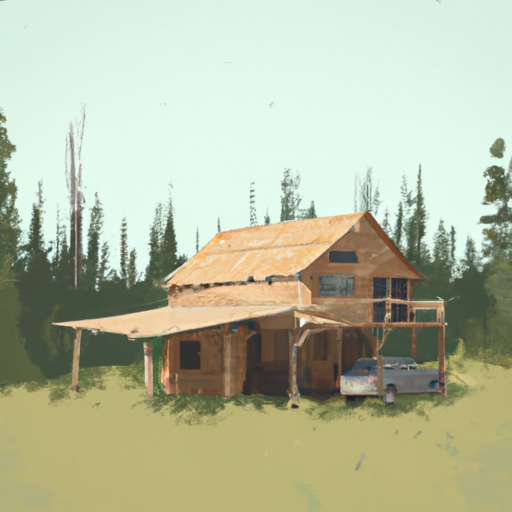Have you ever wondered what it would be like to live off the grid? Maybe you’ve heard stories of people who have chosen to disconnect from traditional utilities and live a more self-sustainable lifestyle. Well, in this article, we’re going to dive into what it means to live off the grid and give you all the information you need to know. So, if you’ve ever been curious about this alternative way of living, keep reading!
Living off the grid essentially means living without reliance on public utilities such as electricity, water, and gas. Instead, individuals or communities generate their own power through renewable energy sources like solar panels or wind turbines. They collect rainwater for their needs and often grow their own food through sustainable farming methods. Living off the grid can be a way to reduce your environmental impact, become more self-sufficient, and even save money in the long run.
Now, you might be wondering where people can actually live off the grid. Well, the beauty of this lifestyle is that it can be practiced anywhere, whether it’s a remote property in the countryside or a rooftop garden in the heart of a bustling city. In fact, speaking of cities, have you ever wondered which city has the most perfect grid? A gridiron city plan is characterized by its layout of streets in a rectangular pattern, making it easier to navigate. One such city known for its grid-like structure is New York City, with its famous street grid system known as the Manhattan grid. But is it the most perfect grid? Well, you’ll have to keep reading to find out! Living off the grid is the ultimate dream for many people seeking a sustainable and independent lifestyle. It involves disconnecting from public utilities such as electricity, water, and sewage systems, and instead relying on self-sufficient methods for meeting basic needs. While living off the grid comes with its fair share of challenges, the benefits are numerous. In this article, we will explore the advantages of living off the grid, the challenges one might face, how to choose the right location, and how to build and maintain off-grid systems.
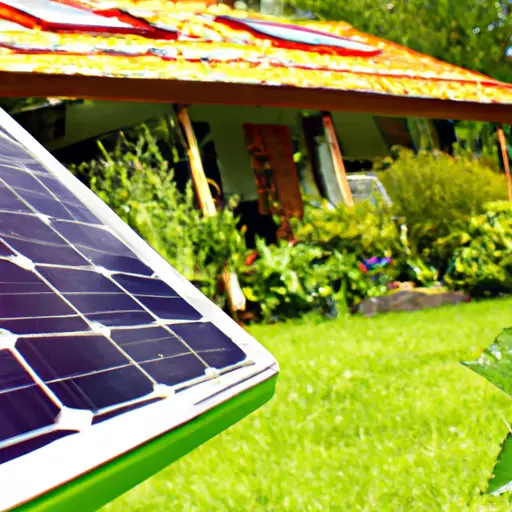
Benefits of Living Off the Grid
Living off the grid offers several benefits, both for individuals and the environment. Let’s take a look at some of the key advantages.
Financial Independence
One of the primary benefits of living off the grid is the potential for financial independence. By generating your own electricity through solar power or other alternative energy sources, you can significantly reduce or eliminate your monthly energy bills. Additionally, you won’t be affected by fluctuating energy prices, allowing you to better control your expenses. This financial freedom can be a significant relief and provide an opportunity to allocate resources to other areas of your life.
Reduced Environmental Impact
Living off the grid also has a positive impact on the environment. By utilizing renewable energy sources like solar or wind power, you can drastically reduce your carbon footprint. Traditional grid-connected homes rely heavily on fossil fuels for electricity generation, resulting in greenhouse gas emissions and contributing to climate change. By going off the grid, you become part of the solution, promoting a more sustainable and eco-friendly lifestyle.
Increased Self-Reliance
Living off the grid fosters a sense of self-reliance and independence. By becoming less dependent on external utilities, you take control of your own basic needs. This includes managing your energy consumption, water usage, and waste disposal. The satisfaction that comes from being self-sufficient and self-reliant is immeasurable, and it can lead to a greater sense of personal fulfillment.
Challenges of Living Off the Grid
While the benefits of living off the grid are enticing, it’s important to consider the challenges that come with it. Here are some of the hurdles you may face.
Limited Access to Utilities
Living off the grid means you won’t have access to public utilities, such as electricity and water supply. Instead, you’ll need to develop your own systems to meet these needs. This can be time-consuming and require substantial upfront investments in equipment and infrastructure. Additionally, it may take some trial and error to get your systems up and running smoothly.
Higher Initial Costs
Transitioning to off-grid living can be costly, especially during the initial setup phase. The expenses associated with purchasing solar panels, batteries, water filtration systems, and other necessary equipment can add up quickly. While these costs may seem daunting at first, it’s essential to think of them as long-term investments. Over time, the savings on utility bills can outweigh the initial expenses.
Greater Responsibility for Basic Needs
Living off the grid means taking full responsibility for your basic needs. This includes actively managing your energy usage, maintaining your water supply, ensuring proper waste management, and providing for your own food production. This increased responsibility requires dedication, time, and effort. It’s essential to be prepared for the extra workload that comes with living off the grid.
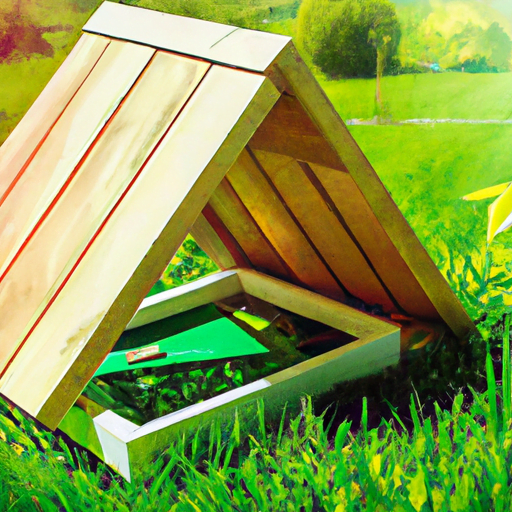
Choosing the Right Location
Selecting the right location is crucial when considering off-grid living. Here are some factors to consider when choosing where to build your self-sufficient paradise.
Assessing Climate and Resources
Before settling on a location, it’s important to assess the climate and available resources in the area. Depending on your energy needs, you’ll need to choose a location that receives adequate sunlight or wind, depending on the type of alternative energy source you plan to utilize. Additionally, having access to sufficient water resources is essential for off-grid living.
Considering Legal and Regulatory Factors
Before embarking on an off-grid lifestyle, it’s crucial to research and understand the legal and regulatory aspects in your chosen area. Some regions have specific rules and regulations regarding off-grid living, including restrictions on building codes, water usage, and waste disposal. Ensure that you are compliant with the local laws to avoid any legal issues down the line.
Finding Suitable Land
Once you have identified a suitable area, the next step is finding the right piece of land to build your off-grid home. Look for properties that offer ample space for your energy and water systems, as well as enough land for food production and sustainable living. Consider factors such as accessibility, proximity to amenities, and the overall suitability of the land for your off-grid needs.
Building Off-Grid Systems
Once you have secured a location, it’s time to set up your off-grid systems to meet your basic needs. Here are some key considerations for building off-grid systems.
Setting Up Solar Power Systems
Solar power is one of the most popular and accessible renewable energy sources for off-grid living. By installing solar panels, you can harness the sun’s energy to power your home. It’s important to calculate your energy needs accurately to determine the appropriate number of solar panels and batteries required. Additionally, a backup generator can be useful during prolonged periods of low sunlight.
Collecting Rainwater and Managing Water Usage
In off-grid living, water becomes a precious resource. Consider implementing rainwater collection systems to ensure a constant supply of water. This involves installing rain barrels or tanks to capture and store rainfall. To make the most efficient use of water, it is essential to implement water-conscious habits, such as using low-flow fixtures, practicing water-saving techniques, and reusing graywater for irrigation.
Creating Sustainable Food Sources
Growing your own food is a crucial aspect of off-grid living. Establishing a sustainable food source, such as a vegetable garden or permaculture system, allows you to become self-reliant in terms of nutrition. Consider factors such as soil quality, climate suitability, and crop rotation when planning your food production systems. Incorporating techniques like composting, organic farming, and vertical gardening can further enhance sustainability.
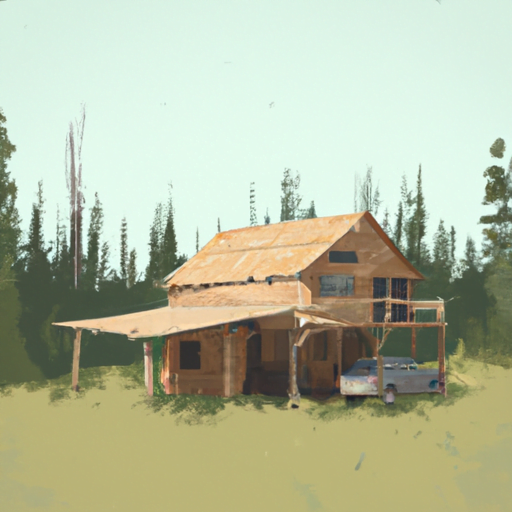
Alternative Energy Sources
While solar power is the most common alternative energy source for off-grid living, there are other options worth exploring.
Wind Power Systems
For areas with consistent wind patterns, wind power systems can be an excellent alternative to solar panels. Wind turbines harness the power of the wind to generate electricity. They are particularly effective in open and unobstructed spaces. However, it’s important to assess wind speeds and potential noise issues before investing in a wind power system.
Hydroelectric Power Solutions
If you have access to a running water source, such as a stream or river, hydroelectric power can be a viable off-grid energy solution. By installing a micro-hydro system, you can generate electricity from the flowing water. It’s important to work with professionals to ensure proper installation and compliance with any local regulations.
Biomass Energy Options
Biomass energy is another alternative energy source that can be suitable for off-grid living. This involves using organic matter, such as wood pellets or agricultural waste, to generate heat and electricity. Biomass stoves, boilers, or generators can provide reliable and sustainable energy. However, it’s important to ensure a steady supply of biomass fuel for long-term viability.
Providing for Basic Needs
Off-grid living requires careful consideration of basic needs and implementing systems to address them. Here are a few essential aspects to consider.
Water Filtration and Purification Systems
When relying on a self-sufficient water supply, ensuring its quality is crucial. Implementing water filtration and purification systems can remove impurities and make the water safe for drinking and everyday use. Depending on local conditions, different methods such as UV filters, charcoal filters, or reverse osmosis systems may be required.
Waste Management Strategies
Managing waste properly is essential for a healthy and sustainable off-grid lifestyle. Implementing composting systems allows for the organic recycling of food scraps and other biodegradable materials. Additionally, proper waste disposal methods should be established for non-biodegradable waste. This may include recycling or responsibly disposing of items that cannot be reused.
Off-Grid Cooking Methods
Traditional cooking methods may not be feasible when living off the grid. Consider alternative cooking methods such as wood-burning stoves, solar cookers, or even outdoor fire pits. These methods can provide a sustainable and efficient way to cook food while minimizing your reliance on conventional energy sources.
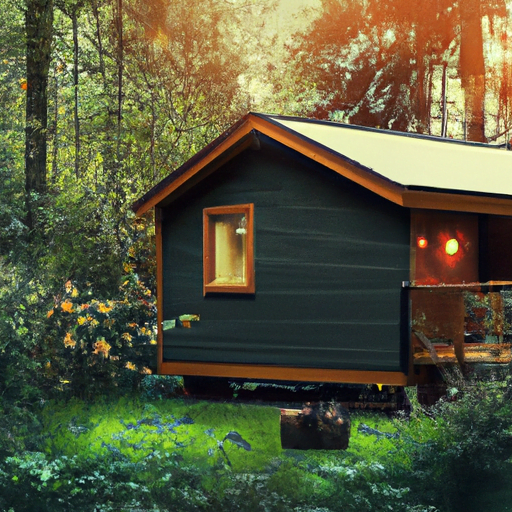
Adapting to Off-Grid Living
Adjusting to off-grid living requires a shift in mindset and lifestyle. Here are some essential considerations for adapting to this sustainable lifestyle.
Adjusting to Limited Energy Consumption
Living off the grid often means conserving energy and using it judiciously. Becoming aware of your energy consumption and developing habits that minimize waste is essential. This might involve using energy-efficient appliances, turning off lights when not in use, and prioritizing energy-intensive tasks during peak energy production times.
Developing New Skills for Self-Sufficiency
Living off the grid entails being more self-reliant and acquiring new skills. Consider learning about sustainable farming practices, water management techniques, and basic DIY skills for maintenance and repairs. Additionally, gaining knowledge about renewable energy systems and resource conservation will help you thrive in your off-grid lifestyle.
Connecting with Like-Minded Communities
Building a network of like-minded individuals and communities can provide invaluable support and resources. Seek out local off-grid or sustainable living communities to share experiences, learn from others, and collaborate on projects. Online forums and social media platforms can also serve as valuable sources for connecting with individuals on a similar journey.
Maintaining Off-Grid Systems
Proper maintenance is crucial to ensure the longevity and efficiency of your off-grid systems. Here are some essential maintenance tasks to consider.
Regular Maintenance for Solar Panels and Batteries
Regularly inspect and clean solar panels to ensure maximum efficiency. Check battery connections and monitor battery health to avoid power disruptions. Performing routine maintenance on your energy systems will help prevent issues and prolong their lifespan.
Monitoring Water Supply and Quality
Regularly check water storage tanks for leaks or contamination. Test the quality of your drinking water periodically to ensure it remains safe for consumption. Implement a maintenance schedule for water filters and purification systems to ensure their effectiveness.
Optimizing Food Production
Maintaining a sustainable food source requires ongoing care and attention. Regularly inspect plants for disease or pests and take appropriate measures. Monitor soil quality and make necessary amendments to ensure optimal nutrition for your crops. Stay up to date with gardening techniques and practices to optimize food production in your off-grid setting.
Sustainable Practices
Living off the grid naturally lends itself to sustainable practices. Here are a few strategies to consider.
Permaculture and Organic Farming
Implementing permaculture principles and organic farming techniques can enhance sustainability in off-grid living. By designing ecosystems that mimic natural patterns, you can create self-sustaining and regenerative food production systems. Emphasizing soil health, biodiversity, and resource conservation is key in these practices.
Composting and Recycling Techniques
Practicing composting and recycling helps reduce waste and maintain soil fertility. Composting organic matter can provide nutrient-rich soil amendments for your garden. Recycling materials that can’t be reused can divert waste from landfills, minimizing environmental impact.
Conserving and Reusing Resources
Conservation plays a vital role in off-grid living. Implement strategies to reduce water consumption, such as using low-flow fixtures and reusing graywater for irrigation. Practice energy conservation by using energy-efficient appliances, turning off lights when not in use, and maximizing natural lighting and ventilation.
Conclusion
Living off the grid offers countless benefits for those seeking a sustainable and independent lifestyle. While it comes with its fair share of challenges, the financial independence, reduced environmental impact, and increased self-reliance make it a compelling choice for many. By carefully considering location, building and maintaining off-grid systems, and embracing sustainable practices, you can create a fulfilling and sustainable lifestyle that aligns with your values. So, if you’re ready to take the plunge into off-grid living, prepare yourself for a rewarding journey towards self-sufficiency and environmental stewardship.

